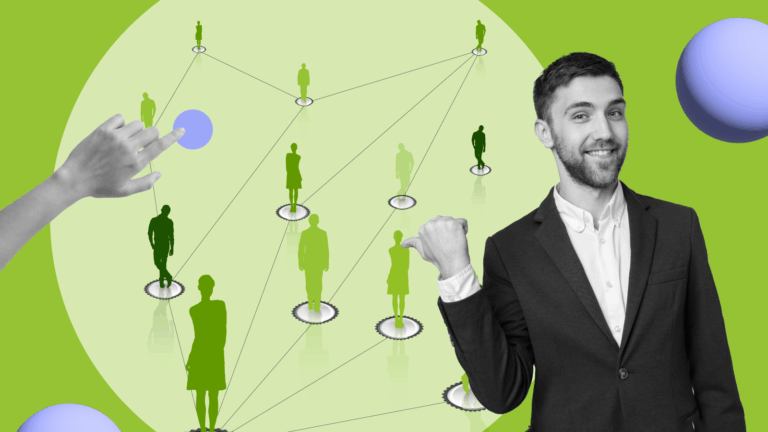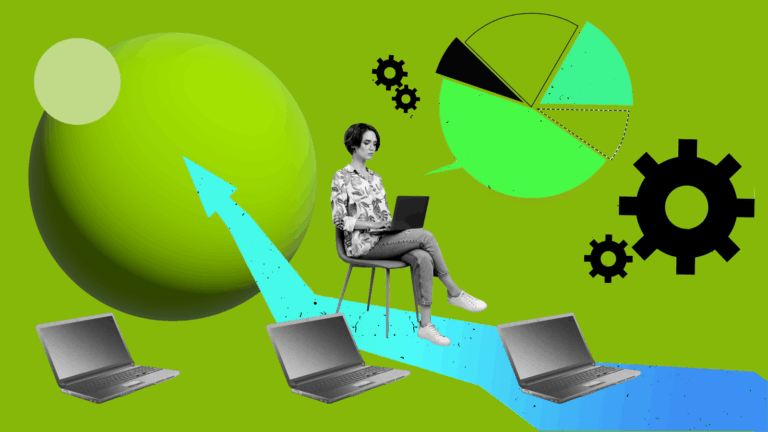
Como tirar partido da contratação com IA para criar uma força de trabalho preparada para o futuro

Imagine effortlessly sifting through a mountain of resumes, identifying the most promising candidates with laser-like accuracy. This is the allure of AI hiring tools, a game-changer revolutionizing how companies find top talent. As artificial intelligence rapidly integrates into various industries, its impact on recruitment is undeniable.
Introduction to AI in hiring
Artificial intelligence hiring signifies a significant shift in the recruitment landscape. This technology empowers companies to streamline their hiring process, making it more efficient and, arguably, more effective. But how exactly does it work? In essence, AI hiring tools leverage sophisticated algorithms to analyze vast amounts of data and identify patterns that would otherwise be impossible for a human recruiter to process manually.
The rising influence of AI on the job market
This shift towards AI-driven recruitment isn’t merely a fleeting trend. It’s a response to the evolving demands of the global job market. By 2025, the AI industry alone will need a staggering 97 million specialists, according to CompTIA. This surging demand underscores the need for tools that can quickly and effectively connect businesses with qualified candidates. But the impact of AI extends far beyond simply filling roles in the tech sector.
The World Economic Forum predicts that AI technology will create 12 million more jobs than it displaces, debunking the common fear of widespread job losses. This optimistic outlook highlights the potential of AI to not only automate existing tasks but also generate entirely new career paths.
Understanding public perception and concerns
Despite the promising statistics, it’s crucial to acknowledge the concerns surrounding AI hiring. One prevalent worry is the potential for bias, as algorithms trained on historical data may perpetuate existing inequalities within certain industries. However, this challenge is actively being addressed. A significant 35% of organizations are already investing in training and reskilling their teams to use AI and automation tools effectively and ethically.
Another concern revolves around the fear of depersonalization in the hiring process. However, it’s important to remember that AI is not intended to replace human interaction but rather to augment it. The goal is to use AI to handle repetitive, time-consuming tasks, freeing up human recruiters to focus on building relationships and making more informed hiring decisions.

How AI is revolutionizing the hiring process
Artificial intelligence (AI) is rapidly changing how we work and live, and the hiring process is no exception. AI recruiting tools are becoming increasingly popular, offering a way to automate and enhance various aspects of recruitment. This new wave of technology is not just changing the game for hiring managers but also creating a more efficient and engaging experience for candidates. Let’s explore how this revolution is taking place.
Speeding up recruitment with AI technologies
One of the most significant ways AI is revolutionizing hiring is by dramatically speeding up the recruitment process. Think about the traditional methods: manually reviewing resumes, scheduling interviews, and conducting initial screenings. These tasks are often time-consuming and repetitive. With AI hiring tools, recruiters can automate these tedious tasks and focus on more strategic aspects of the hiring process, like evaluating candidates’ cultural fit and assessing soft skills.
For instance, AI-powered tools can analyze resumes in seconds, identifying the most relevant candidates based on skills, experience, and other criteria. This automation not only saves time but also eliminates the risk of unconscious bias, ensuring a fairer initial screening process.
Improving candidate experience through automation
Beyond just speeding up the hiring process, AI is also enhancing the candidate experience. Let’s be honest, lengthy application processes and delayed responses can be frustrating for job seekers. AI can help create a more engaging and positive experience for candidates throughout their journey.
Imagine this: you’re a candidate applying for a job, and instead of waiting for weeks to hear back, you receive an instant acknowledgment from an AI-powered chatbot. This chatbot then answers your preliminary questions about the role and the company, guiding you through the next steps. This seamless and interactive experience can significantly improve a candidate’s impression of the company.
Furthermore, AI can personalize the candidate journey by recommending jobs that match their skills and interests, even if they haven’t specifically applied for them. This proactive approach ensures candidates are presented with relevant opportunities, increasing their chances of finding the right fit.

The debate on AI: Enhancing vs. compromising human touch in hiring
The intersection of technology and human resources has sparked considerable debate, particularly regarding AI hiring. While some view AI as a powerful tool to streamline recruitment processes, others express concerns about its potential to compromise the essential human touch in hiring decisions.
A closer look at potential bias in AI tools
One of the most significant concerns surrounding AI in hiring is the potential for bias. Since AI algorithms learn from historical data, they may inadvertently perpetuate existing biases present within that data. For instance, if a company has historically hired from a narrow range of demographic backgrounds, the AI may favor similar candidates in the future, hindering diversity and inclusion efforts.
However, it’s crucial to remember that human judgment isn’t immune to bias either. Unconscious biases can easily seep into traditional hiring processes, influencing decisions related to resume screening, interviews, and final selections.
Combatting racial and ethnic bias in hiring with AI
Interestingly, AI has the potential to mitigate racial and ethnic bias in hiring, rather than exacerbate it. By setting clear parameters and focusing on skills and qualifications rather than demographic characteristics, AI can help create a more objective and equitable playing field for candidates from all backgrounds.
Furthermore, AI can identify and flag potential bias in job descriptions and performance reviews, prompting organizations to make necessary adjustments and promote fairer practices.

Continuous learning and adaptability
As the world of recruitment undergoes rapid transformations, “AI hiring” platforms are poised to be at the forefront of this change. Unlike traditional tools that remain static over time, AI hiring platforms are inherently dynamic, thanks to their ability to learn, adapt, and refine their functionalities based on new data and experiences.
Every interaction, feedback, and outcome feeds into these AI hiring systems, allowing them to improve their algorithms and decision-making processes.
As the job market’s nuances and complexities grow, these platforms will evolve to better understand the subtleties of candidate profiles, job descriptions, and organizational needs.
Furthermore, by continuously adapting, AI hiring platforms ensure that “hiring decisions” made by organizations are not just based on present realities but are also informed by emerging trends, ensuring a future-ready approach.
The amalgamation of machine learning capabilities with recruitment functions signifies a paradigm shift in how businesses will approach hiring decisions, making them more data-driven, precise, and aligned with both current and forthcoming organizational goals.
Summing up
As the business world finds itself on the brink of a technological revolution, the significance of integrating AI hiring into recruitment strategies becomes ever more pronounced.
It’s not just about modernizing or speeding up processes; it’s about refining the very fabric of recruitment to ensure the elimination of human biases, which have historically influenced hiring decisions.
By embracing AI hiring, organizations take a monumental step towards creating recruitment processes that are not only efficient but also free from the inadvertent human biases that can limit talent diversity and potential.
Through advanced algorithms and data-driven insights, AI hiring platforms can identify and rectify areas prone to human bias, ensuring that talent acquisition is truly based on merit, skill, and alignment with organizational values.
In the transformative realm of recruitment, AI hiring shines brightly, providing a roadmap to a workforce that mirrors the diversity of the global talent pool, and one that thrives on innovation.
It’s an imperative for businesses to harness this power, eliminate human biases, and chart a course towards unparalleled growth and achievement.
The future beckons, and with AI hiring as a guide, organizations can ensure they’re poised for success in an ever-evolving landscape.
Descubra como o DevSkiller pode ajudar a conceber melhores programas de formação de funcionários. Agendar uma demonstração com um dos nossos especialistas em produtos ou assista a este rápido Vídeo de demonstração de 5 minutos para saber mais.




